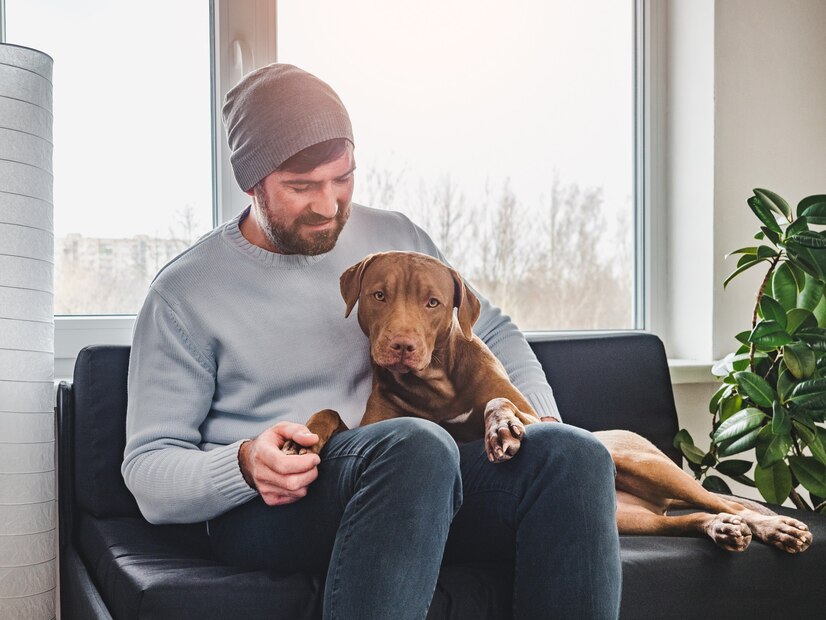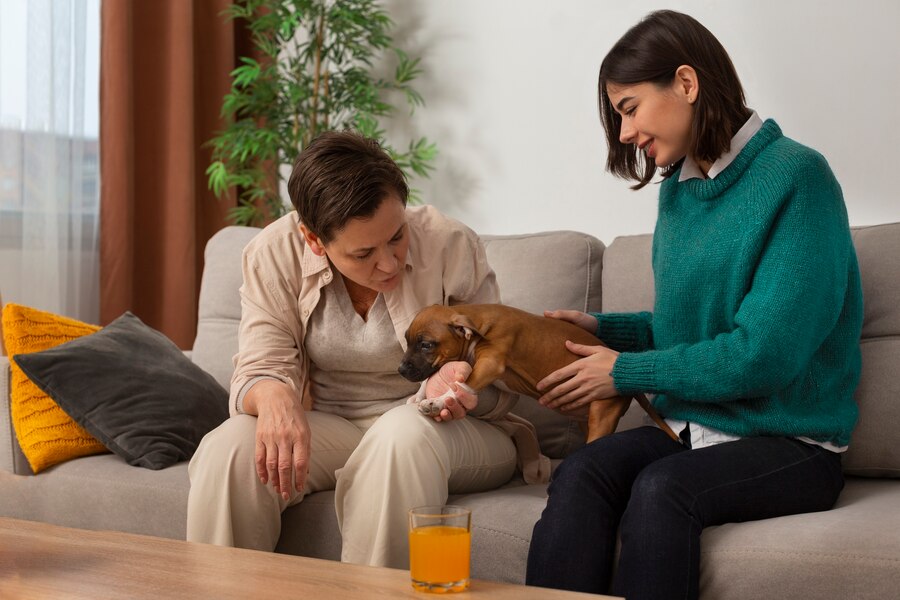Navigating addiction recovery while caring for a beloved pet can be challenging, but it is possible with the right support. Pet-friendly rehab centers offer a unique solution for individuals who want to address their addiction issues without being separated from their furry companions. This guide provides an overview of pet-friendly rehab, including how these centers operate, the benefits they offer, and practical tips for balancing recovery with pet care.
Reach Out with Us (888-325-2454)
What is Pet-Friendly Rehab?
Pet-friendly rehab centers are specialized facilities that allow individuals undergoing treatment for addiction or other issues to bring their pets with them. These centers understand that pets can provide significant emotional support and comfort during the recovery process. By accommodating pets, they aim to enhance the overall treatment experience and improve outcomes for their clients.
In a pet-friendly rehab, the presence of pets can offer several benefits. Pets provide companionship and reduce feelings of loneliness, which can be particularly comforting during the challenging times of recovery. Their presence can also help alleviate stress and anxiety, contributing to a more supportive and less isolating environment. Additionally, having a pet can encourage clients to maintain a routine and take on responsibilities, which are positive elements in the recovery process.
How Pet-Friendly Rehab Centers Operate
Pet-friendly rehab centers operate with specific protocols to ensure the safety and well-being of both clients and their pets. These centers typically have designated areas for pets and adhere to strict hygiene and health standards to prevent the spread of illness.
Clients are often required to adhere to rules regarding pet behavior and care, and some centers may offer additional support services such as pet care training and veterinary access. The integration of pets into the rehab environment is designed to enhance the therapeutic experience while maintaining a safe and clean facility.
Benefits of Pet-Friendly Rehab Programs
Emotional Support
Pets provide invaluable emotional support, offering companionship and unconditional love. In a pet-friendly rehab program, individuals benefit from the comfort and reassurance that their pets provide, which can be particularly soothing during challenging times in recovery.
Having a pet present can help reduce feelings of loneliness and anxiety, making the recovery process more manageable and less isolating.
Stress Reduction
Interacting with pets has been shown to reduce stress and promote relaxation. The presence of a pet in a rehab setting can help lower cortisol levels and increase feelings of calm and well-being.
Pet-friendly rehab centers often include activities such as pet playtime or walks, which contribute to a more relaxed and supportive recovery environment.
Routine and Structure
Caring for a pet requires a daily routine, which can help individuals in rehab establish a structured schedule. This routine includes feeding, exercising, and attending to the pet’s needs, which can enhance the individual’s sense of purpose and responsibility.
Maintaining a structured routine can also improve adherence to the rehab program and support overall recovery goals.
Finding a Pet-Friendly Rehab Center
Finding a pet-friendly rehab center can significantly enhance the recovery experience, especially for those who find comfort and emotional support from their pets. Start by researching rehab centers that explicitly advertise their pet-friendly policies. These facilities often have specific guidelines and accommodations in place to ensure the well-being of both clients and their pets. Look for centers that detail their pet policies on their websites or in their promotional materials, as this information can provide insight into the types of pets they accept, any restrictions, and the overall environment provided for pets.
It’s also crucial to directly contact the rehab centers you’re considering. Reach out to inquire about their pet policies and any specific requirements or procedures for bringing a pet along. During this conversation, ask about the types of pet accommodations available, such as designated pet areas or on-site pet care services. Understanding these details will help you assess whether the center can meet both your recovery needs and those of your pet. Additionally, discussing any potential concerns or questions with the facility’s staff can give you a clearer picture of how they handle pet-related matters and ensure that your pet will be well-cared for during your stay. 
Preparing Your Pet for Rehab
Preparing your pet for rehab involves ensuring they are healthy, well-behaved, and up-to-date on vaccinations. Schedule a visit to the veterinarian to confirm your pet’s health status and discuss any necessary preparations for their stay at the rehab center.
It is also important to pack essential items for your pet, such as food, medications, bedding, and toys, to make their transition to the rehab environment as smooth as possible. Familiarizing your pet with their new surroundings and maintaining a consistent routine can help reduce stress and ease their adjustment.
Balancing Recovery and Pet Care
Balancing recovery and pet care requires effective time management and self-care strategies. Ensure you allocate time for both your personal recovery activities and your pet’s needs, such as feeding, exercise, and companionship.
Communicate openly with your rehab program staff about any challenges you face in managing both your recovery and pet care. They can provide additional support and resources to help you maintain this balance.
Challenges and Considerations
While pet-friendly rehab centers offer many benefits, there are challenges and considerations to keep in mind. Pets may experience stress or behavioral changes in a new environment, which can impact their well-being and your recovery experience.
Additionally, maintaining a pet-friendly environment requires adherence to strict hygiene standards and pet care responsibilities. Be prepared to address any issues related to pet health or behavior and seek support from rehab staff if needed.
Post-Rehab Pet Care and Transition
After completing rehab, transitioning back to daily life with your pet involves continuing the care routine established during your stay. Ensure that your pet receives ongoing medical care, maintains a healthy routine, and continues to receive the emotional support they need.
Establish a post-rehab plan that includes regular check-ins with your therapist and a clear strategy for managing any ongoing challenges related to addiction and pet care. This plan should address both your recovery goals and your pet’s well-being to support a successful and balanced transition.
Find Pet-Friendly Addciction Rehab Near You
Overcoming addiction while caring for your pet is achievable with the support of a pet-friendly rehab center. These programs offer emotional support, stress reduction, and a structured routine to enhance your recovery journey. By finding a suitable pet-friendly rehab center and preparing both yourself and your pet for the experience, you can achieve a successful recovery while maintaining the important bond with your furry companion.
If you’re considering a pet-friendly rehab program or need more information on how to integrate your pet into your recovery process, please reach out to us. We are here to support you and your pet throughout your journey to recovery.

FAQs
-
Question: How can I overcome addiction while caring for my pet?
- Answer: Overcoming addiction while caring for your pet can be challenging, but it’s possible. Pet-friendly rehab programs offer a supportive environment where you can prioritize both your recovery and your pet’s well-being.
-
Question: What are the benefits of bringing my pet to rehab?
- Answer: Bringing your pet to rehab can provide invaluable emotional support, reduce stress, and create a sense of normalcy during a challenging time. Pets can be powerful motivators for recovery.
-
Question: How can my pet help me in my recovery journey?
- Answer: Your pet can be a crucial part of your recovery journey by offering unconditional love, companionship, and a sense of purpose. Caring for your pet can help establish routines and foster responsibility.
-
Question: What are the challenges of caring for a pet while in recovery?
- Answer: Overcoming addiction while caring for your pet can be challenging due to potential changes in routine, financial strain, and the emotional toll of recovery. However, with proper planning and support, these challenges can be managed effectively.
-
Question: How can I find a pet-friendly rehab facility?
- Answer: Researching pet-friendly rehab facilities is essential for finding the right support system for both you and your pet. Consider factors like location, amenities, and the level of pet care provided when making your decision.
-
Question: What kind of pet care is provided in pet-friendly rehabs?
- Answer: Pet-friendly rehabs offer various levels of pet care, from basic needs like feeding and walking to specialized care for pets with specific requirements. Some facilities may even provide opportunities for pet therapy.
-
Question: How can I prepare my pet for rehab?
- Answer: Preparing your pet for rehab involves creating a comfortable environment, establishing a routine, and considering their emotional well-being. It’s essential to involve your pet in your recovery plans.
-
Question: What if I’m concerned about my pet’s behavior during rehab?
- Answer: Many pet-friendly rehabs have experienced staff trained in handling pets with various behavioral challenges. Open communication with the facility about your pet’s needs is crucial.
-
Question: How can I maintain a strong bond with my pet during recovery?
- Answer: Spending quality time with your pet, engaging in shared activities, and seeking support from fellow pet owners in recovery can help maintain a strong bond.
-
Question: How can I ensure my pet’s long-term well-being after rehab?
-
- Answer: Developing a comprehensive aftercare plan for both yourself and your pet is essential. This includes finding reliable pet care, attending support groups, and continuing to prioritize your pet’s physical and emotional needs.



